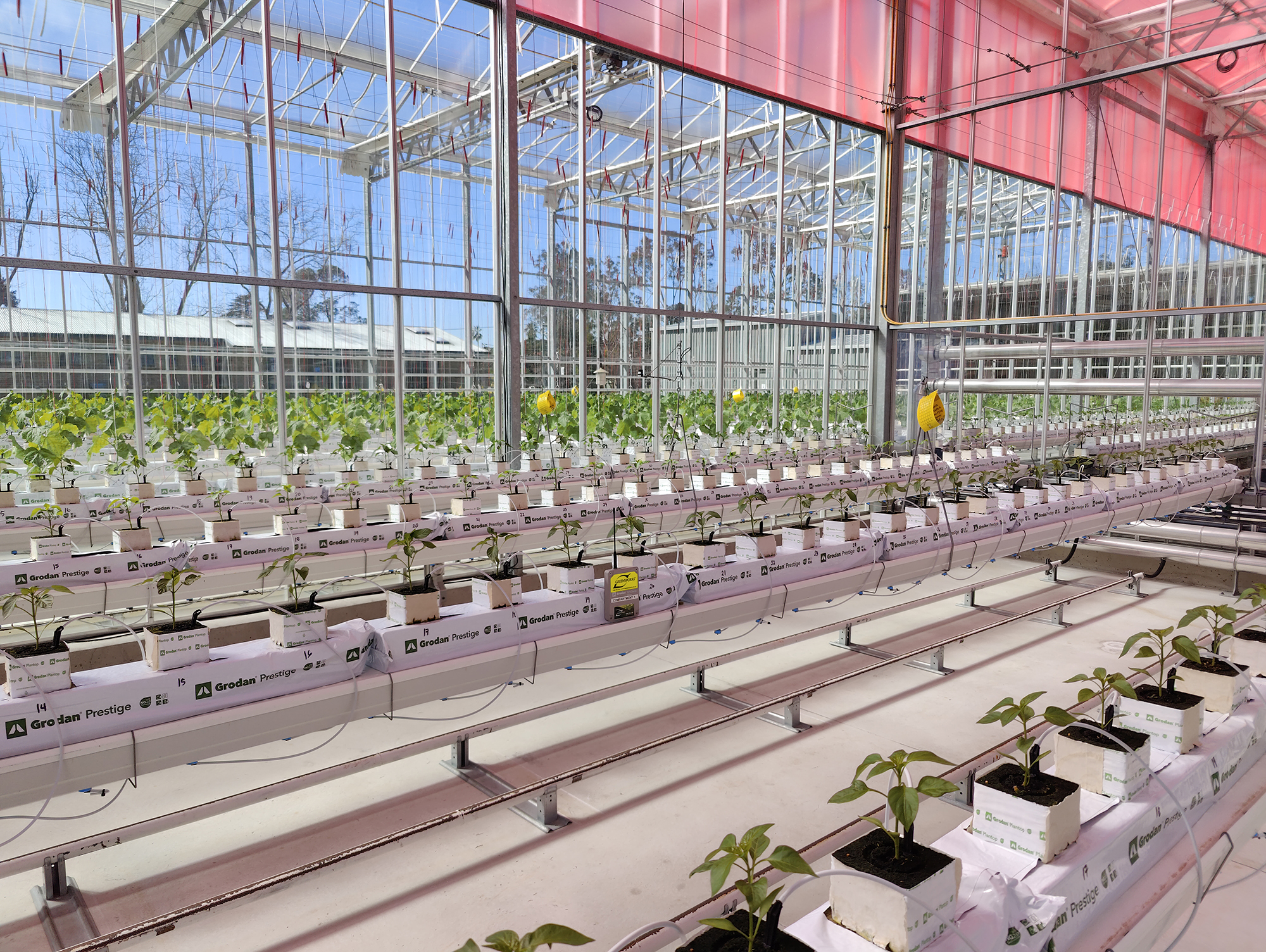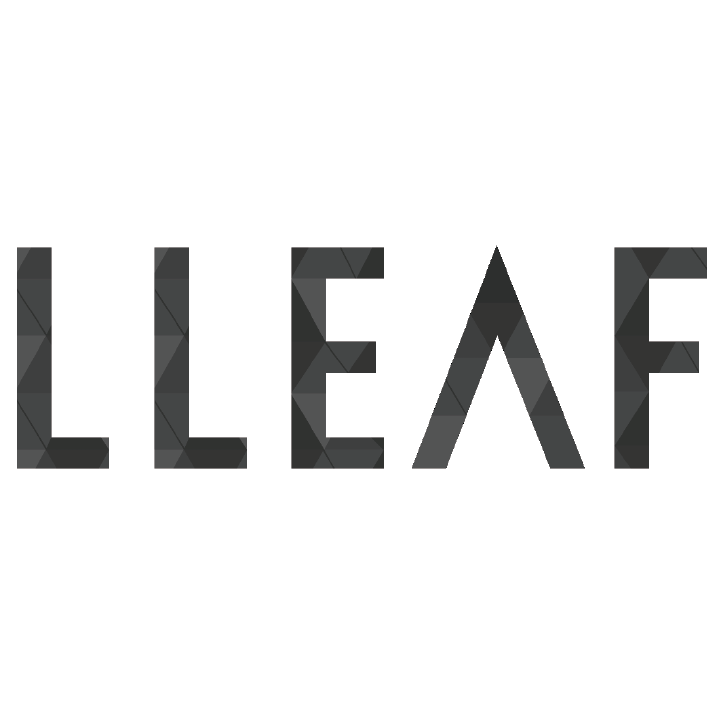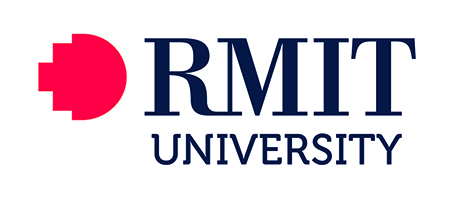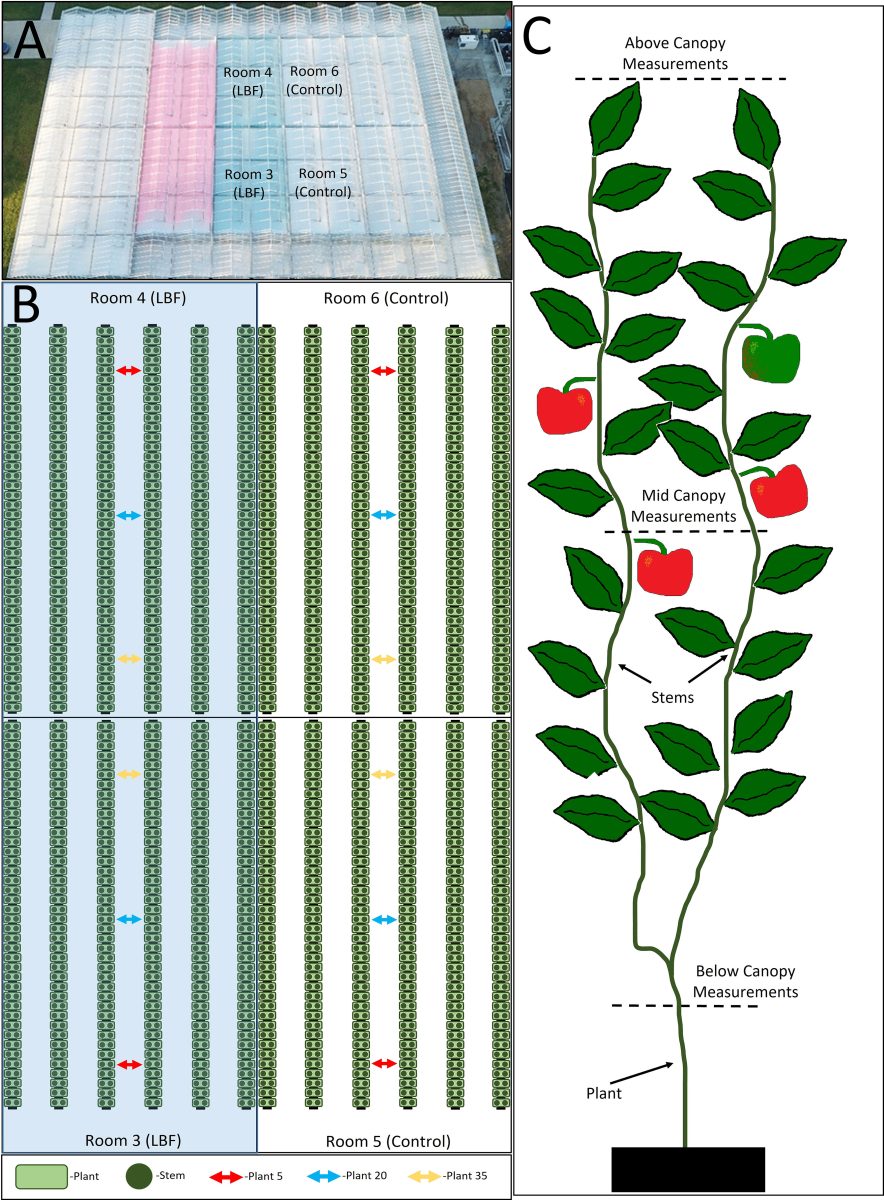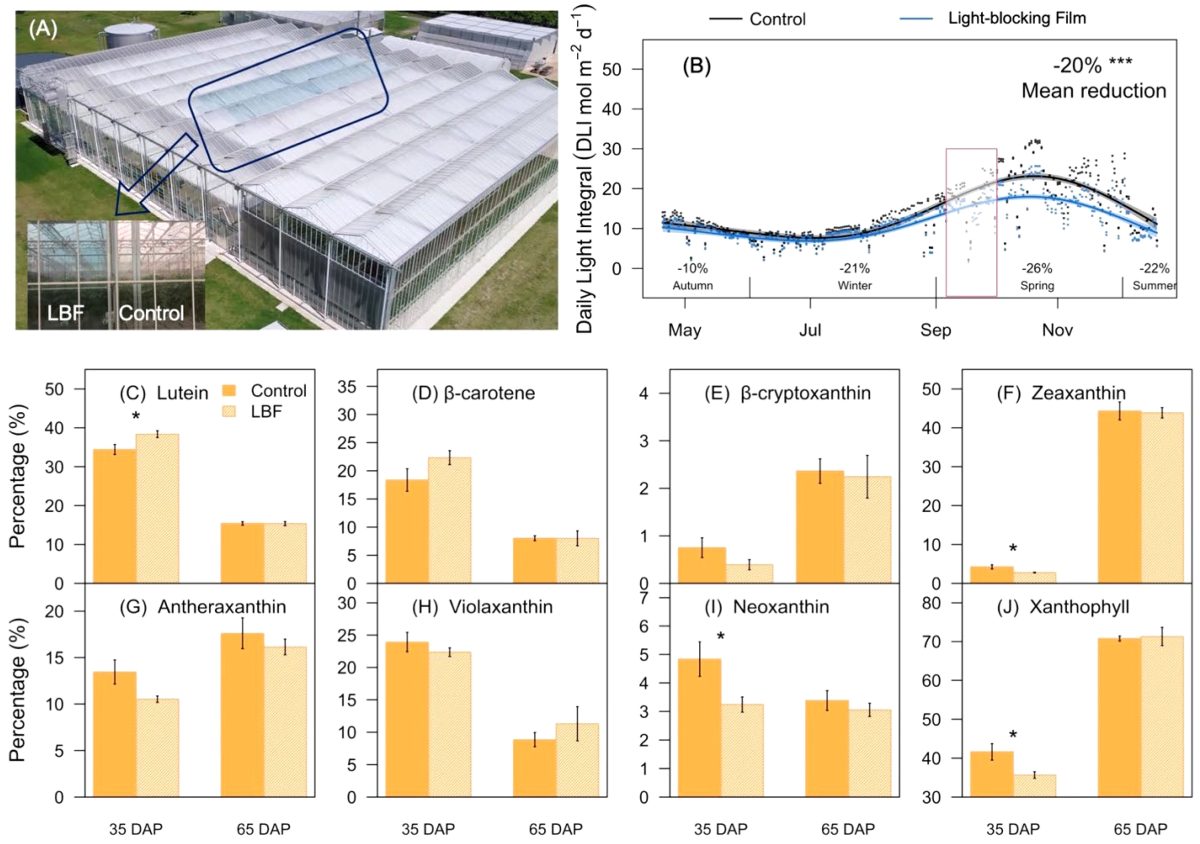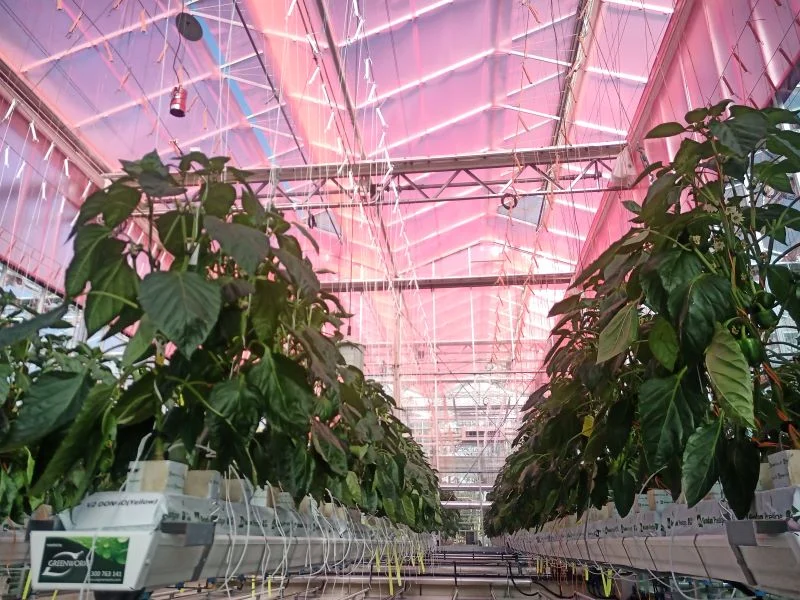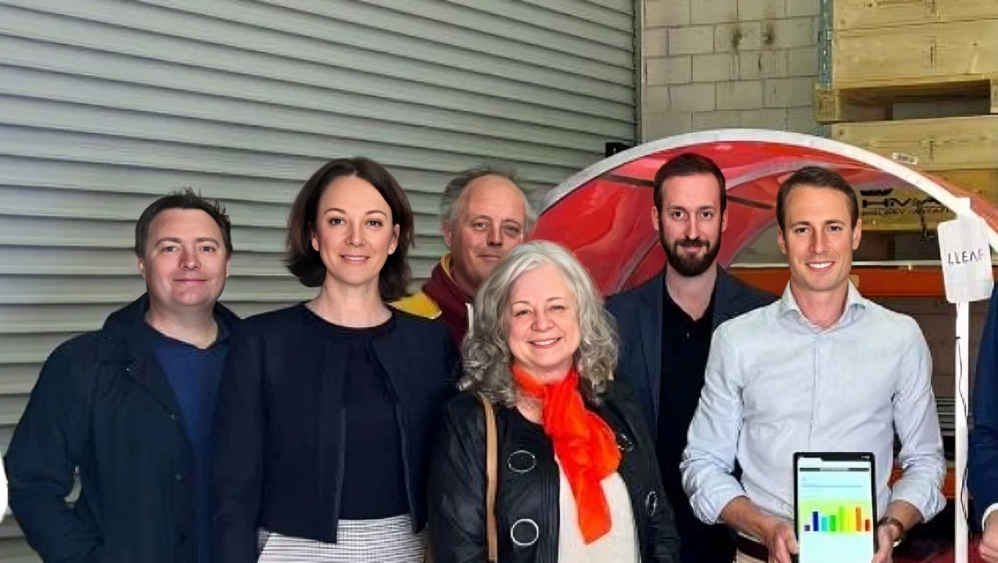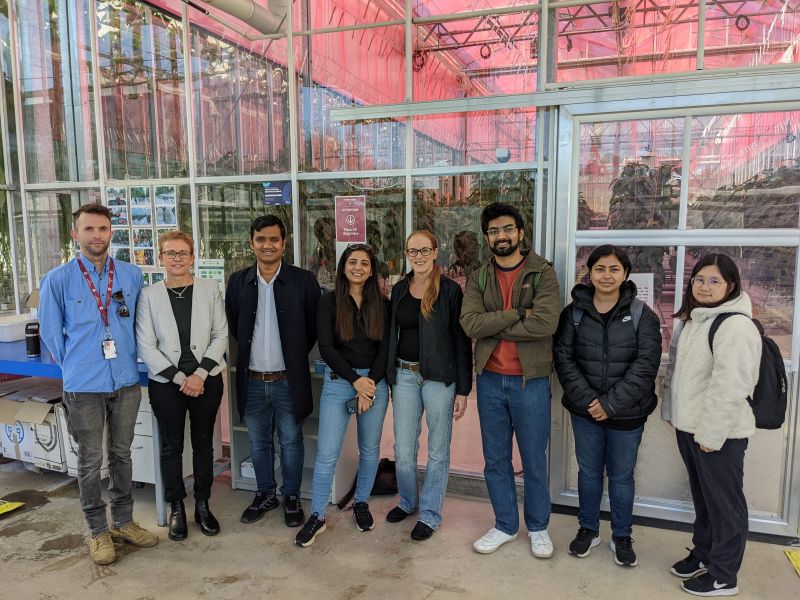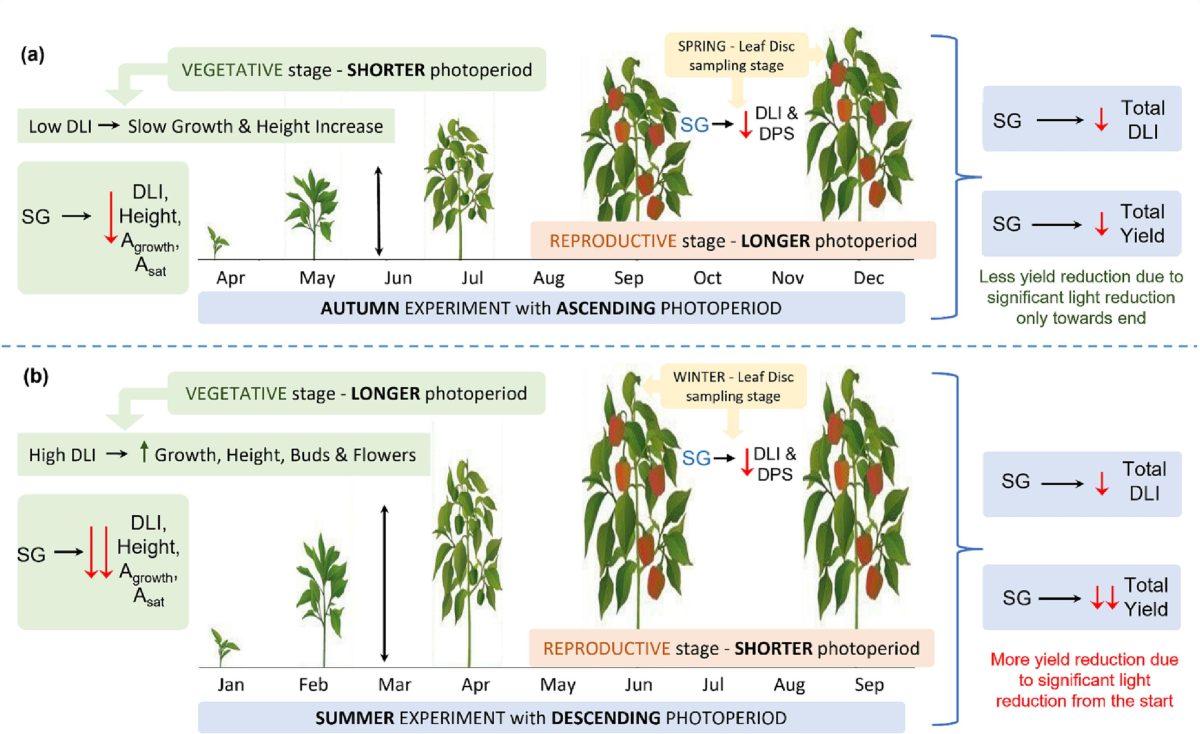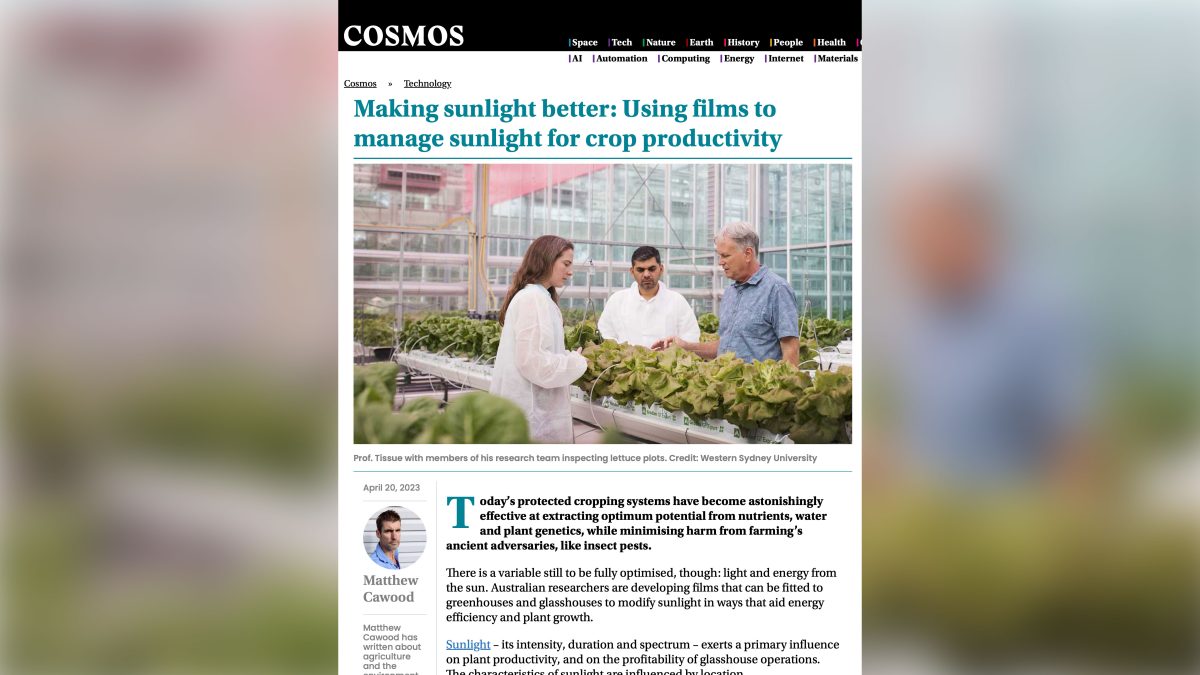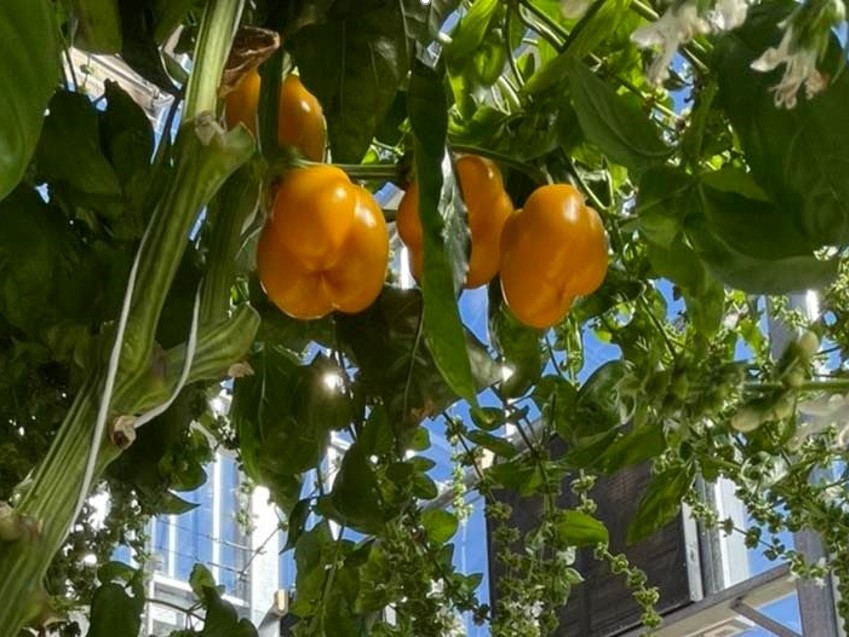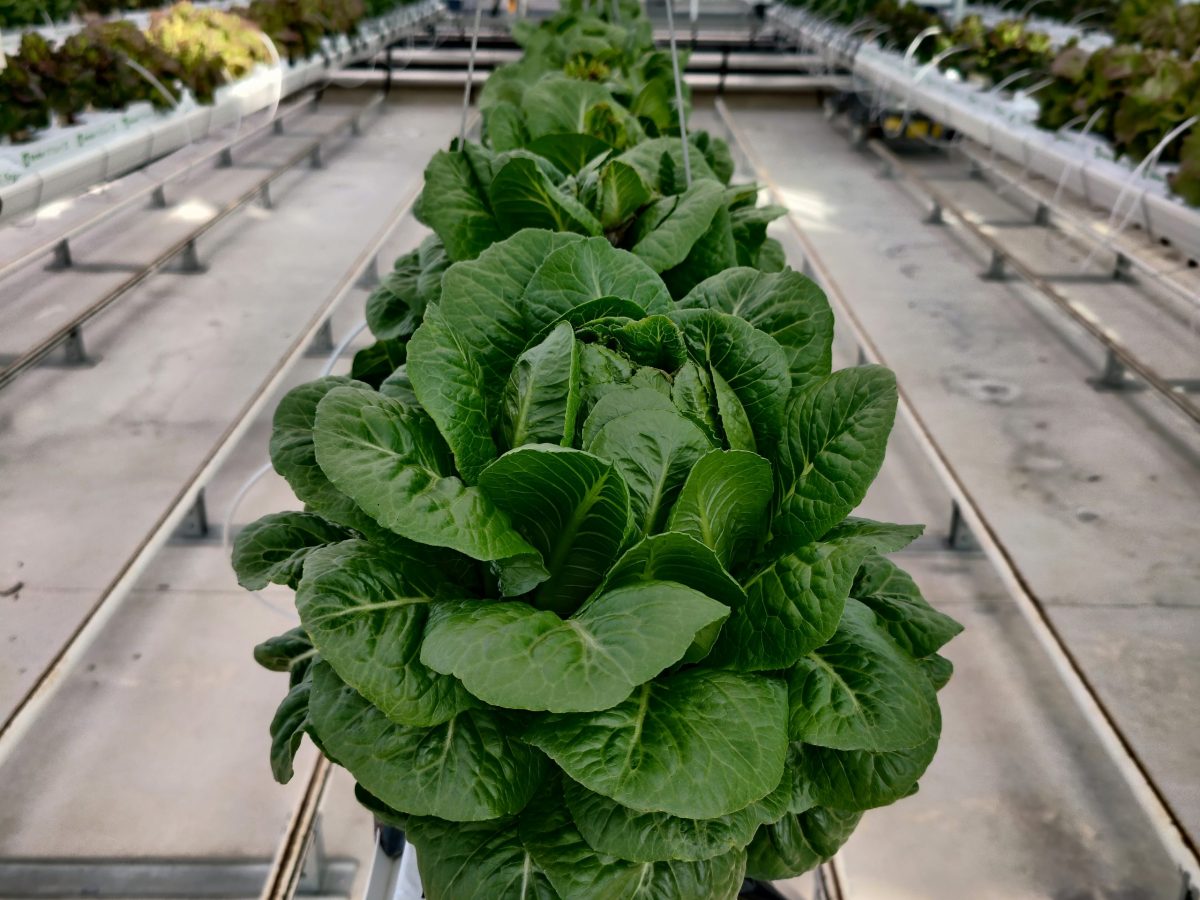Challenge The protected cropping industry faces increasing pressure to improve energy efficiency and resource use while maintaining high yields and crop quality. Traditional glasshouse systems often result in excessive energy consumption due to uncontrolled light and temperature conditions. There is a clear need for innovative technologies that optimise environmental control while reducing operational costs.
Solution This research program, based at the National Vegetable Protected Cropping Centre (NVPCC) at Western Sydney University, investigates the application of Smart Glass (SG) and LLEAF light-shifting films in commercial glasshouses. These technologies aim to block or redirect specific wavelengths of light to reduce internal heat load, improve photosynthetic efficiency, and minimise energy use. The project trials these materials under real production conditions, evaluating their impact on crop performance and environmental sustainability.
Impact The project enhances the NVPCC’s role as a centre of excellence for protected cropping innovation, strengthening partnerships between university, industry, and government. It also supports workforce development through education and training initiatives aimed at addressing the industry’s skill shortage. Ultimately, the adoption of smart films could lead to more sustainable, cost-effective, and commercially successful protected cropping operations across Australia.


